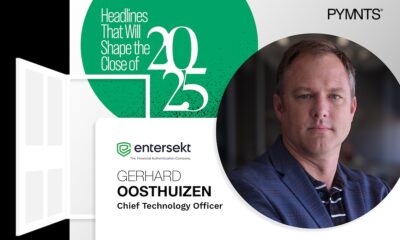Fintech
LVMH Seeks $1 Billion Sale of Fashion Brand Marc Jacobs | PYMNTS.com

Luxury conglomerate LVMH is reportedly looking to sell fashion brand Marc Jacobs for about $1 billion.
Continue Reading
Fintech
Speed Raises $8 Million to Expand Bitcoin and Stablecoin Payment Solutions | PYMNTS.com
Fintech
Databricks Targets $134 Billion Valuation in New Funding Round | PYMNTS.com

Data analytics/artificial intelligence (AI) firm Databricks is reportedly raising $4 billion in a new funding round.
-

 Fintech6 months ago
Fintech6 months agoRace to Instant Onboarding Accelerates as FDIC OKs Pre‑filled Forms | PYMNTS.com
-

 Cyber Security7 months ago
Cyber Security7 months agoHackers Use GitHub Repositories to Host Amadey Malware and Data Stealers, Bypassing Filters
-
Fintech6 months ago
DAT to Acquire Convoy Platform to Expand Freight-Matching Network’s Capabilities | PYMNTS.com
-

 Fintech5 months ago
Fintech5 months agoID.me Raises $340 Million to Expand Digital Identity Solutions | PYMNTS.com
-

 Artificial Intelligence7 months ago
Artificial Intelligence7 months agoNothing Phone 3 review: flagship-ish
-

 Fintech4 months ago
Fintech4 months agoTracking the Convergence of Payments and Digital Identity | PYMNTS.com
-

 Artificial Intelligence7 months ago
Artificial Intelligence7 months agoThe best Android phones
-

 Fintech7 months ago
Fintech7 months agoIntuit Adds Agentic AI to Its Enterprise Suite | PYMNTS.com


